Innovation: a lot of opportunities
14 de December, 2021Innovation: How to get a return on the investment from building a digital product?
26 de January, 2022It is fairly common for the CTO or CPO to receive a request from the CEO to create some sort of individual bonus for the product development team. I have heard this kind of questioning quite often in some of the mentoring sessions I do. Something along the lines of “we need to measure people and reward them according to their individual performance, I want to implement the Ambev culture”. Usually, this quote about Ambev comes from the reputation of the strong and aggressive culture of obtaining compensation based on the achievement of individual goals.
Most of the CEOs I know have a sales background. Those that don’t, most likely have sales at the top of their priority list. People on sales teams are normally paid a base salary plus commission on sales, which is an individual incentive. That is, it is very easy, month by month, to identify who are the salespeople with the best and worst contribution to the company based on their sales results, and compensate the best results individually through the sales commission, and work with people with worse performance. Therefore, it is quite natural to think about using this dynamic of recognizing and rewarding individually based on these individual results for all people in a company, including product development teams.
Teamwork
However, in product development teams we have people with different roles, engineering, product design, and product management. This diversity of functions is essential to creating successful products. That’s why the team’s result is the team’s result, it’s the result of teamwork. Individual results are incomplete. It is useless for the product manager to define what will be done to achieve a certain result and solve a certain customer problem, if the product designer does not help in this definition, bringing her knowledge of user experience and interaction design, and if the engineers do not help in this definition and build what was defined. For this reason, the individual bonus makes no sense for product development teams.
Individual vs team bonus
Even Ambev, which has always had a strong culture of achieving individual goals, has changed. In a 2017 interview – in Portuguese – for Época Negócios magazine, Fabio Kapitanovas, then vice president of people and management at Ambev, said that:
The company has sought to increase collaboration among employees — the goals began to include collective variables and not just individual ones. Today, the bonus depends on individual, area and company results. We changed that so that people have an incentive to collaborate more with each other.
In a conversation with Ricardo Okino, a sales specialist, and consultant, who has worked in Linx, Conta Azul, and Vitta, he commented that some companies are already reviewing their compensation plan for commercial teams with the aim of, in addition to the commission, which is an individual bonus, also include team and company goals as part of compensation or as an accelerator. It’s a way to reward a person for their individual results and, at the same time, encourage group work and collaboration behaviors.
How then to recognize and reward the individual?
In commercial teams, even in those that adopt part of the bonus is based on team results, it is reasonably simple and objective to evaluate individual performance.
On the other hand, in product development teams, results do not appear only through individual efforts. Each person on the team has to do their part well for the result to happen. In a situation like this, how to recognize and reward each person on the team individually? First, you need to know how to evaluate people on a product development team. For this, we must look at two components, the “what” and the “how”, that is, what result was achieved by the team and how the person contributed to achieving this result.
Analyzing the “what”, if a certain result is expected from the team, it may make sense to have some kind of bonus for the entire team for a higher than expected result. Normally, this type of bonus can be defined in two ways:
- the same reward for everyone, such as a dinner, a trip or even a cash prize. This type of bonus helps reinforce the sense of team.
- some reward based on multiples of salary. In this case, we will already be making some kind of individual reward, given that the salary of people in a product development team is not the same.
When we analyze “how” each person on the product development team contributed to achieving the result, that’s when we have the opportunity to think about how to compensate each person on this team individually. This compensation can be done through a salary increase accompanied or not by an eventual promotion to the next career step. This salary increase directly impacts any team bonuses that are set for the product development team. Let’s imagine that a given product development team is entitled to a bonus of two additional salaries for surpassing a given result. Whoever has a salary of X will receive a 2*X bonus, while whoever has a salary of 1.25*X will receive a 2.5*X bonus.
In other words, the way to reward people from a product development team individually is the evolution that the person will have in their career at the company. People who contribute a lot to achieving and surpassing results end up evolving faster than those who contribute less.
Digital Product Management Books
Do you work with digital products? Do you want to know more about how to manage a digital product to increase its chances of success, solve its user’s problems and achieve the company objectives? Check out my Digital Product Management bundle with my 3 books where I share what I learned during my 30+ years of experience in creating and managing digital products:
- Startup Guide: How startups and established companies can create profitable digital products
- Product Management: How to increase the chances of success of your digital product
- Leading Product Development: The art and science of managing product teams
You can also acquire the books individually, by clicking on their titles above.
Mentoring and advice on digital product development
I’ve been helping several companies extract more value and results from their digital products. Check here how I can help you and your company.

